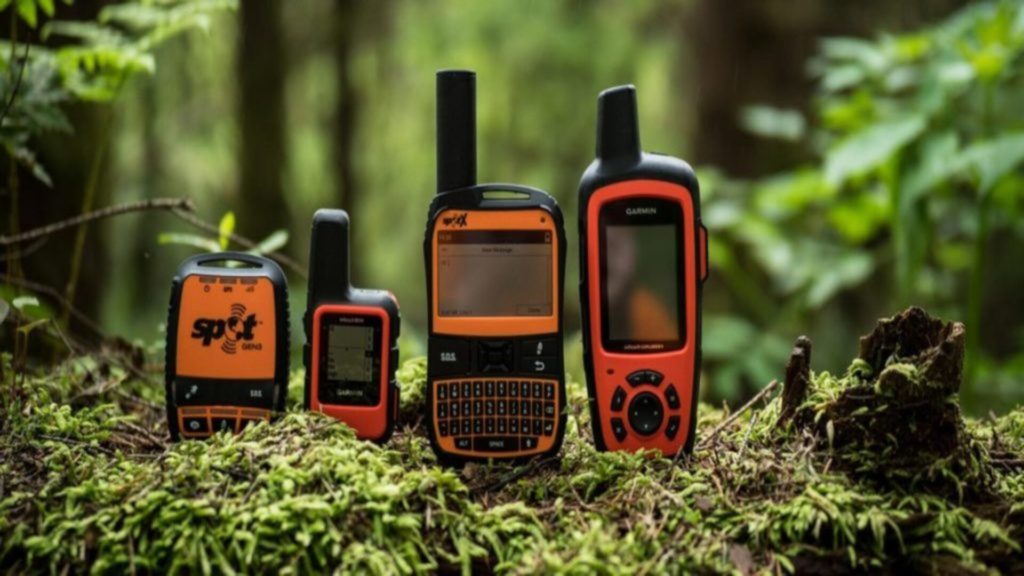We don’t like to think about it, but there may come a time when you will need to send up a flare. Cell phones don’t always work and smoke signals can be a bit of a fire hazard, so having something like the Garmin InReach, Spot, or a simple PLB can literally be the difference between life and death.
And it’s not just for injuries and medical events that they are helpful. Example, I recently returned from a hike to a surprisingly full parking lot (I had been second to arrive but passed numerous ascending folks as I was coming down). As I went to leave, two cars who had started to lose control on the hilly, curvy, narrow, and now icy mountain road were stopped about a quarter mile out, totally blocking the only way out. Two more cars were a mile further down, each blocking the road at different junctions. People were trying to come and go and having to leave vehicles all over and at weird angles, and there were 24 cars in the lot that had no way of leaving. However: Garmin = message to friend = phone calls to tow truck and ranger station = we all got out just before it got dark. It wasn’t a 911 situation but being able to get messages out was key.
The different Garmin satellite communicators are:
- InReach Explorer+
- InReach Mini
And Spot’s satellite messengers are:
- Spot X
- Spot Gen 3
All of these gadgets have a few things in common:
- Each has an SOS button which immediately notifies emergency responders of your distress and your coordinates
- They can track your journey, also called breadcrumbs
- They can all send messages
- You can create shareable online maps of your trip for folks back home to follow along and see your progress
- They can automatically post updates to your social media
- Waterproof
- Impact-resistant
The main difference is that the Garmins and the Spot X allow for back-and-forth messaging while the Spot Gen 3 is outgoing only; size, navigation capabilities, and other features are similar. When considering price (the InReach Explorer costs nearly three times the Spot Gen 3) also look at the subscription cost of each and what features are going to make you and your loved ones most comfortable.
The Garmin Explorer is perfect if you want a full-featured 2-way messaging system, GPS navigation tool, tracker, and SOS device that can be used anywhere on the planet pole-to-pole. You can pair it with your smartphone, it has a user-friendly interface, and is ideal if you often go deep into the backcountry and want strong navigational assistance and data tracking.
The Garmin InReach Mini is quickly becoming the most popular satellite communication device around: it’s small and light and still allows for 2-way communication, a feature made very user-friendly when paired via Bluetooth to your smartphone. Tracking and SOS capabilities are worldwide, and you can pair it with your Garmin watch.
The Spot X is a great value and performs most of the same features as the mini: SOS, tracking, 2-way messaging, and programmable waypoints. Its battery life is longer than the Garmins, and it doesn’t require pairing with a phone for messaging.
And the bare-bones basic Spot Gen 3 will still give you reliable satellite communication at a fraction of the cost of the others. It provides SOS capabilities, GPS tracking, and 1-way communication.
A (personal locator beacon) is another option, though limited in function:
PLBs are smaller relatives of the Emergency Position Indicating Radio Beacons (EPIRBs) used by boaters. When you activate a PLB, it transmits a powerful distress signal that’s received by a global system of satellites and monitored by NOAA, who contacts SAR and other local resources. You can’t relay info, you’re basically just sending a location and a request for aid.
- Works in remote areas worldwide
- Multiyear battery life
- No subscription fees
- No ability to send messages home or cancel an SOS call
ACR is the go-to brand for these, although RescueMe makes one as well.
For a relatively small cost and just a few ounces on your pack, these devices can be a real gamechanger for your confidence and peace of mind, especially if fear tends to hold you back. Knowing you can send an SOS signal, find your way if you get off-track, call for vehicle assistance, and be able to communicate with your home base can allow you to get out for longer times and farther distances, challenge yourself harder, and widen your comfort zone quite a bit.

Wendy Harrington is a California native who has lived in a small town at the foothills of the Cascade Mountains in Washington state since 2001. Her love of trail running and peakbagging has led her to summit all five Washington volcanoes, climb to the high points of three states, and put nearly a thousand miles a year on her boots. Her loves include ridgelines, saddles, granite, one-day pushes on big mountains, anything volcanic, long solo days, and objectives that push limits and test endurance.

